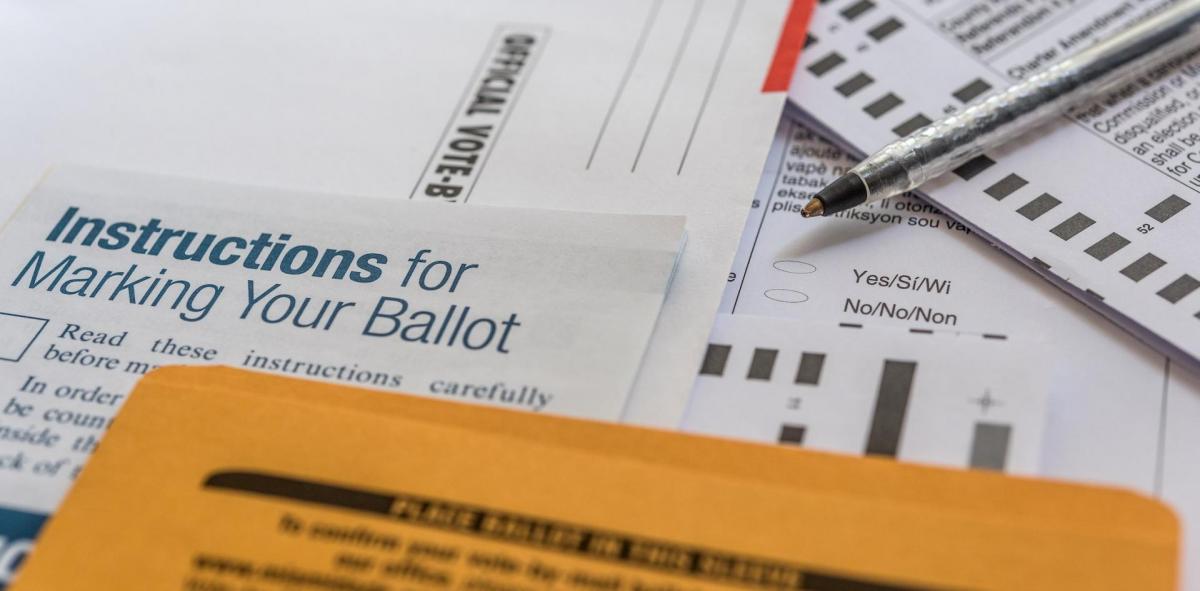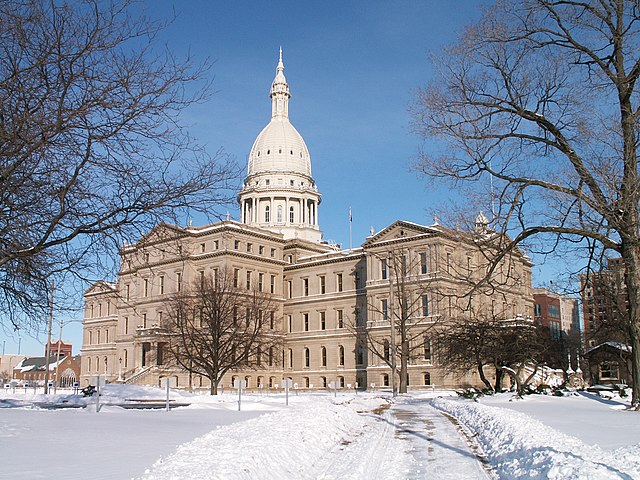Tag: local elections
-
Nonpartisan offices make up a majority—58%—of those Ballotpedia has covered since 2023

Since 2023, Ballotpedia has covered elections for approximately 66,000 local offices. Of that total, 58% have been nonpartisan, and 42% have been partisan. In this analysis, a nonpartisan office is one where voters elect candidates without any party labels on the ballot. A partisan office, on the other hand, is one where candidates either secure…
-
Chavez-Lopez and Tordillos running in June 24 special runoff election for San Jose City Council District 3

Gabby Chavez-Lopez and Anthony Tordillos are running in the June 24, 2025, special runoff election for San Jose City Council District 3. Chavez-Lopez and Tordillos advanced to the runoff from the nonpartisan special general election on April 8, 2025. Chavez-Lopez received 30.0% of the vote and Tordillos received 22.2%. The two advanced to a runoff…
-
Incumbent Larry Krasner defeats Patrick Dugan in Democratic Primary for district attorney of Philadelphia

Incumbent Larry Krasner (D) defeated Patrick F. Dugan (D) 64.4%-35.6% in the Democratic primary for district attorney of Philadelphia on May 20. Before the election, WHYY Radio’s Carmen Russell-Sluchansky wrote, “The contest pits two competing philosophies against each other: Krasner’s commitment to continuing to overhaul a historically punitive system and Dugan’s pledge to restore a…
-
Corey O’Connor defeats incumbent Edward Gainey Democratic primary for mayor of Pittsburgh, Pennsylvania

Corey O’Connor (D) defeated incumbent Edward Gainey (D) 54.5%-45.5% in the Democratic primary for mayor of Pittsburgh, Pennsylvania, on May 20. A Democrat has held the mayor’s office since 1934. O’Connor and Tony Moreno (R) will now run in the general election on Nov. 4. Moreno defeated Thomas West (R) 70.6%-29.4%. Before the election, PennLive’s…
-
Incumbent Brandi Lautigar and Pollyann Sorcan running in the nonpartisan special election for Minnesota’s Rock Ridge Public School Board

Incumbent Brandi Lautigar and Pollyann Sorcan are running in the nonpartisan special election for an at-large seat on the Rock Ridge Public School Board on April 8, 2025. Sorcan is running for the seat that she previously held before the board voted to expel her and appoint Lautigar to her seat. Sorcan was re-elected in…
-
Both candidates for Marina, Calif. city council complete Ballotpedia’s Candidate Connection survey

Both candidates running in the general election for Marina, Calif. City Council District 3—Jenny McAdams and Mike Moeller—completed Ballotpedia’s Candidate Connection survey. These survey responses allow voters to hear directly from candidates about what motivates them to run for office. All survey respondents are asked to tell voters about their three key campaign messages. In…
-
Both candidates for county commissioner in Sandoval County, N.M., complete Ballotpedia’s Candidate Connection survey

Both candidates running in the general election for County Commissioner Board District 4 in Sandoval County, N.M.—Jordan Conner Juarez and Madigan Diana Ray—completed Ballotpedia’s Candidate Connection survey. These survey responses allow voters to hear directly from candidates about what motivates them to run for office. All survey respondents are asked to tell voters what they…
-
Crisp County, Ga., magistrate judge primary ends in tie, rare runoff, following recount

Republican voters in Crisp County, Ga., will get a second shot to pick their nominee in the county’s chief magistrate judge race on June 18. George Holmes and Brandon Rivers faced each other in a primary on May 21. Initial returns showed Holmes leading Rivers by one vote, enough to secure the nomination. But in…
-
Thirty-six candidates are running for nine spots on the Lansing Charter Commission on May 7

Thirty-six candidates are running for nine spots on the Lansing Charter Commission on May 7. The winners will be tasked with revising and rewriting Michigan’s state capital’s city charter over the coming years. Last November, Lansing voters approved a ballot question calling for the creation of the charter commission, with 52% voting in favor. The…
-
Voters in San Francisco, California, will decide on seven local ballot measures on March 5

Voters in San Francisco, California, will decide on seven ballot measures on Mar. 5, 2024, including one bond measure, one charter amendment, four ordinances, and one declaration. The ballot measures concern topics related to housing bonds, allowing commercial spaces to be converted to residential properties without incurring a real estate transfer tax, local ethics laws,…

